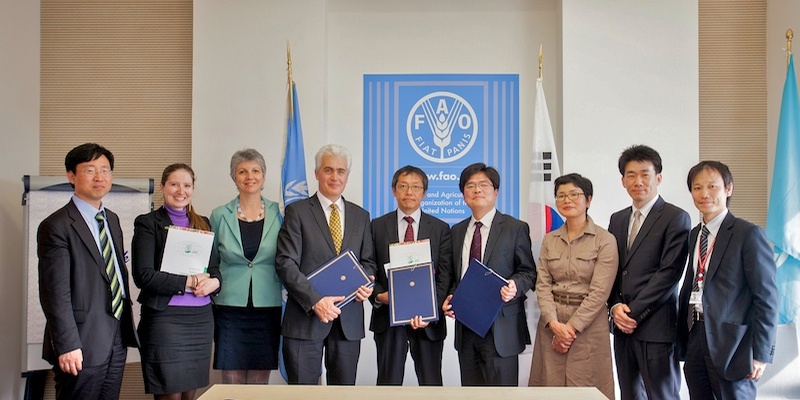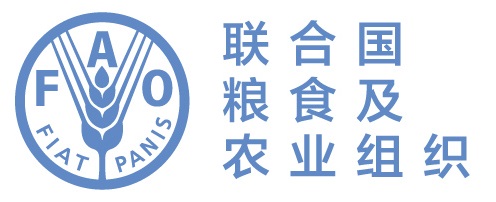The Republic of Korea contributes towards phytosanitary capacity development in South-East Asian countries
Posted on Fri, 10 May 2013, 10:58

The signing ceremony for the 3-year FAO project Support to Capacity Development in Implementation of Plant Pest Surveillance and Information management in South-East Asian Countries took place on 25 April 2013. The Ministry of Agriculture, Food and Rural Affairs of the Republic of Korea contributed nearly US$ 1.8 million towards this project to strengthen the capacity of NPPOs (National Plant Protection Organizations) of developing countries in the South-East Asian region. The project will address plant pest surveillance and pest identification needs for the purpose of updating their regulated pests list and supporting Pest Risk Analysis (PRA) in accordance with the IPPC international standards for phytosanitary measures. Mr Laurent Thomas, FAO Assistant Director-General of the Technical Cooperation Department and Mr Sangman Lee, the Head of Delegation of the Republic of Korea, signed the agreement in FAO headquarters reaffirming the Republic of Korea s commitment towards plant health and trade facilitation. Most developing countries in the South-East Asian region have a strong agricultural base, and diverse and abundant plant resources. However, their capacity for pest surveillance, pest identification and pest risk analysis is not adequate to meet the needs to facilitate fair and safe trade of plant and plant products from the viewpoint of risk reduction of the introduction of quarantine pests as well as of improvement of cost and effectiveness of phytosanitary services. In the international trade of plant and plant products, the most practical measure to protect a country against the introduction of regulated plant pests is, first of all, to address the risks of pests to their national plant resources through close surveillance of pests present in the country and identification of pests that found in imported consignments, followed by the establishment of appropriate phytosanitary measures for regulated pests, including the possibility to prohibit the introduction of some of the regulated articles. NPPOs of the participating countries (Cambodia, Lao People''s Democratic Republic, Myanmar, Nepal and Viet Nam) will have an increased ability to perform their functions effectively and sustainably to protect plants and plant products from harmful pests and to facilitate trade through specific training programmes. The project has the following five outputs expected: - establishment of a training programme; - improved human resources capacity; - construction of a Pest Information System; - increased diagnostic capacity; and - assessment of training. This project is the first one to bring the outcomes of the IRSS (Implementation Review & Support System) activities (study, survey and workshops) into a field project for countries.Asia and Pacific Plant Protection Commission (APPPC) and Regional Office for Asia and Pacific (RAP) organized the regional workshop on ISPM6 followed by facilitation of the global symposium on pest surveillance in collaboration and support of IPPC in 2012. As an immediate follow up action the consultation with the Republic of Korea resulted in the development of the project with support of NPPOs of participating countries and IPPC Secretariat. Such collaboration will be continued in the implementation to maximize the project results. The IRSS facilitates and promotes the implementation of both the IPPC and the International Standards for Phytosanitary Measures (ISPMs) by analyzing the current status of implementation and identifies challenges as well as opportunities for improvement. This can be a pilot project to show how to develop relevant phytosanitary projects, potentially extending to other regions. In addition, during the Eight Session of the Commission on Phytosanitary Measures in April 2013, the Republic of Korea announced an US$ 100,000 contribution in 2013 to increase activities supported by the IPPC Trust Fund.

